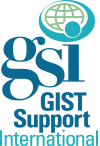Paris, France, Thursday 3 November 2005 – Updated results from a PhaseIII trial presented at the 13th European Cancer Conference (ECCO) showthat sunitinib (SU11248) prolongs both progression-free and overallsurvival in patients with progressive metastatic and/or unresectableGIST whose disease has failed to respond to the standard therapy -imatinib mesylate.
This study was a double-blind, placebo-controlled, international,multicentre, Phase III trial involving 312 patients with GIST whosecancer had progressed despite previous treatment with imatinibmesylate. Failure of imatinib mesylate therapy was either the result ofresistance or intolerance. Sunitinib treatment was in a repeated 6-weekcycle consisting of a 50 mg capsule once daily for 4 weeks, followed bya 2-week break.
Results from the first planned interim analysis of this trial,disclosed at ECCO 13, demonstrate a 4-fold increase in the average timeto progression (TTP) with sunitinib treatment, as compared to placebo.The estimated median TTP was 6.3 months with sunitinib, versus 1.5months for placebo. Overall survival (OS) has also been estimated to besignificantly greater with sunitinib therapy, although the average OSsurvival point has not yet been reached in either the sunitinib orplacebo treatment arm.
Overall, treatment with sunitinib was well tolerated withfatigue, diarrhoea, nausea, sore mouth and skin discolouration provingto be the most common non-haematological side effects. Adverse eventswere generally mild to moderate and no severe effects (grade 4) werenoted during the course of the study.
Dr George Demetri from the Dana-Farber Cancer Institute andHarvard Medical School, USA summarised: "These results from our globalcollaborative team provide important confirmatory evidence thatdocuments the significant efficacy and acceptable tolerability ofsunitinib (SU11248) in patients with metastatic GIST whose disease wasresistant to imatinib, or those who experienced unacceptable sideeffects from imatinib. Before sunitinib, there was no therapy of provenvalue for such patients, and this trial shows that sunitinib hasdocumented benefits"
Sunitinib is a mulitargeted drug which inhibits a number ofimportant tyrosine kinase enzymes to exert antiangiogenic andantitumour effects.
Full Text At: http://www.eurekalert.org/pub_releases/2005-11/foec-e1-110305.php

